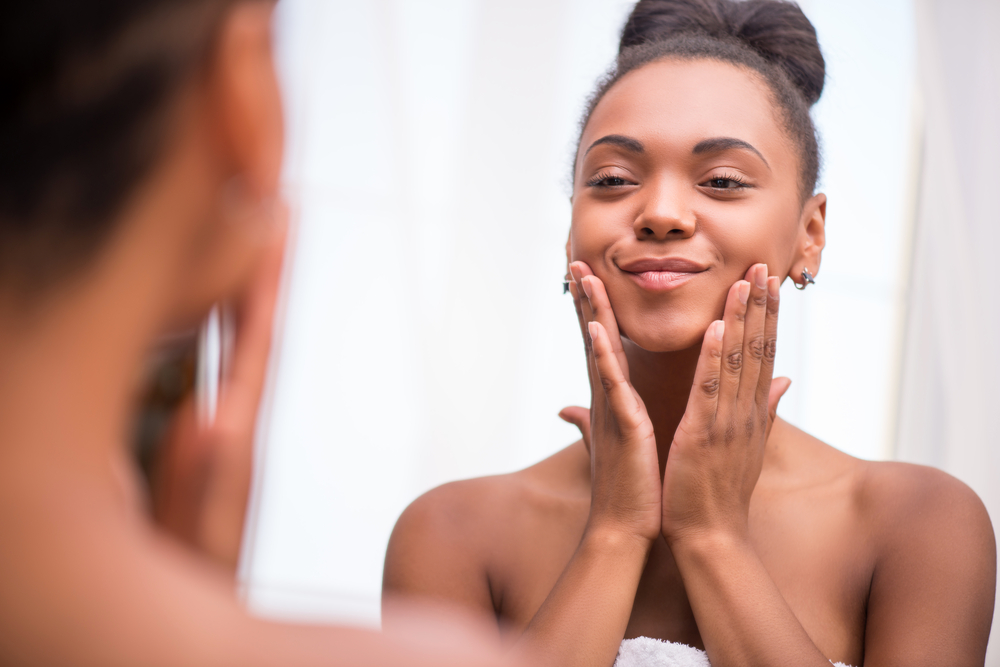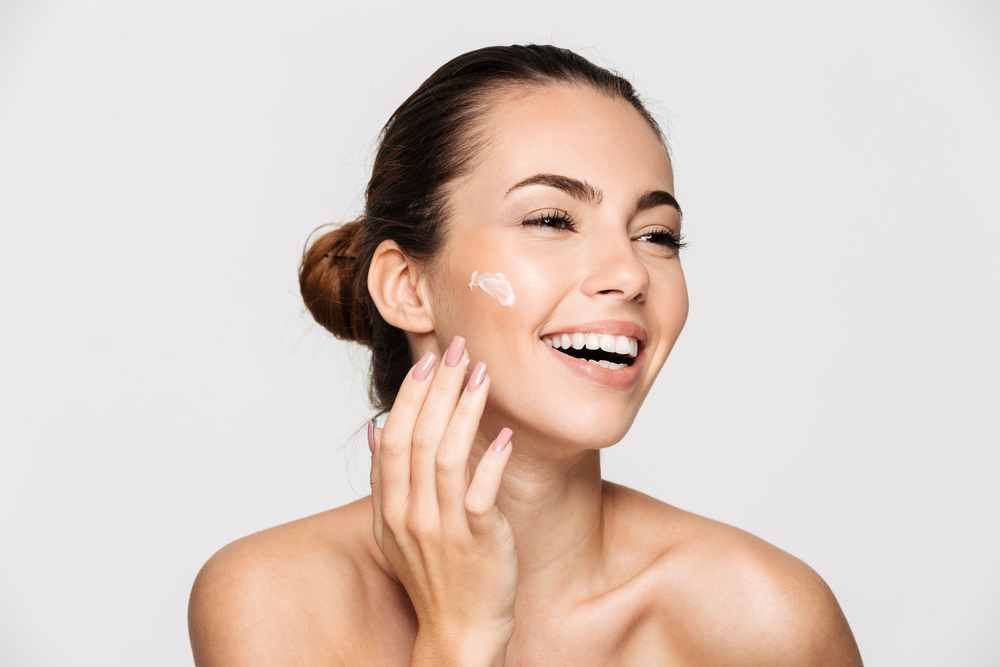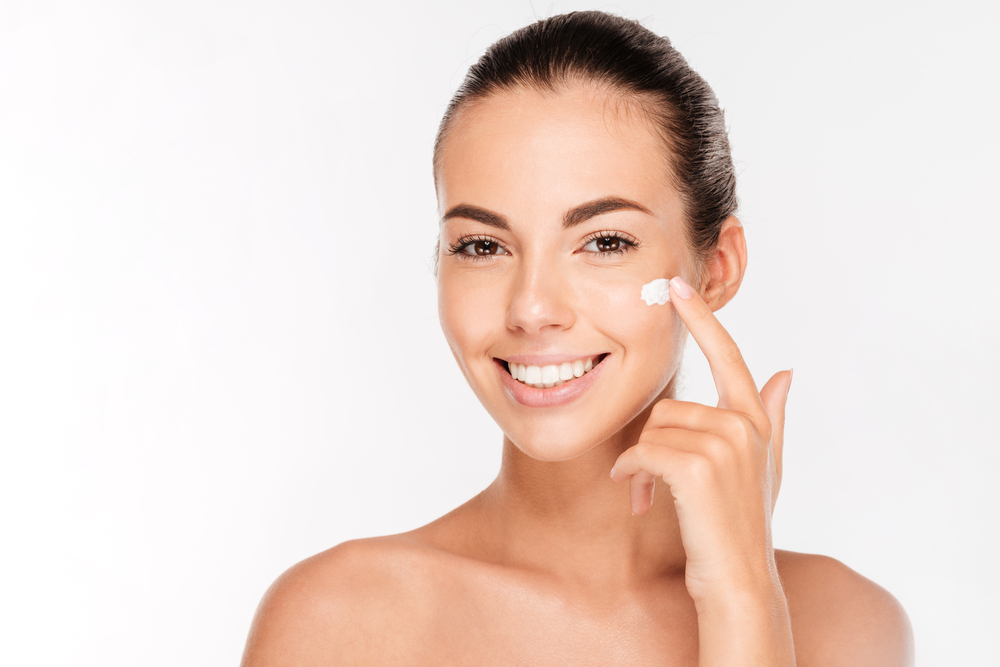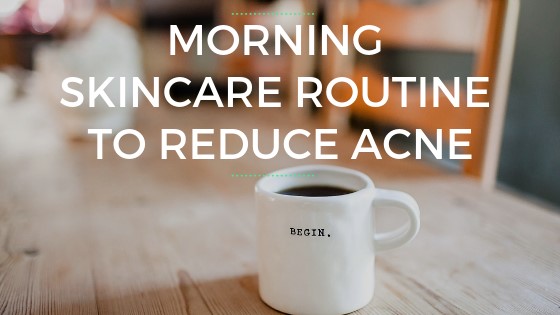“Better safe than sorry” is a piece of wisdom that definitely applies to skincare. There’s a whole bunch of information out there on how to tailor your skincare regimen. No wonder if you eventually get lost in the labyrinth of tips and sometimes conflicting advice. You may end up over-experimenting and trying out too many different products. Unfortunately, this is counter-effective.
Tailoring a winning skincare routine is the key to success on the road to glowing skin. Any dermatologist will agree: you need to nurture your skin on a daily basis to reap the benefits in due time. We tend to do the tricks at night, but snooze-full mornings don’t always include skin pampering. So what’s the best way to go about your morning skincare routine?

The Golden Rule of Morning Skincare
If there’s one buzz phrase that should come to your mind when you hear morning skincare it’s skin support.
Whatever you do as part of your skincare regimen in general should aim to support your skin in its natural function. Especially in the mornings, you shouldn’t get ahead of your skin.
There’s no such thing as “complicated” skin. Your skin is smart on its own and you should listen to it, not command it.
Even acne-prone skin has its own logic of life and all you need is to understand it and work with it. Choose only what supports your skin in its functioning, not what confuses and impedes it. To maintain happy, gorgeous skin you need to keep it simple with your morning (and general) care routine.

Learn What Your Skin Needs in the Morning
Countless beauty professionals have been preaching for years about the need of deep cleansing your face in the mornings. You’ve probably heard all about it: how your skin produces toxins during sleep that need to be thoroughly washed off first thing in the morning. Well, we’ve got some good news for the snooze-loving among you.
In fact, your skin is the same in the mornings as any other organ in the human body – busy preparing for the daywork. The skin uses the time while we’re asleep to regenerate and replenish its stores and defence mechanisms for the next day.
One of these defences is the skin’s so-called natural barrier. Now, you probably remember that some of the causes of acne have to do with dead skin cells and the sebum – you skin’s natural oil. If you’ve learnt to see them by now as villians, hold on. Everything in our bodies that’s naturally there has its function.
The skin’s natural barrier is a thin layer consisting of dead skin cells and sebum, as well as a bit of sweat from the sweat pores (yup, quite the combination). This mixture maintains a pH level of 5.5 and works as your skin’s natural protective layer against environmental stressors. It means your skin has its own way of protecting from bacteria, air pollution, dust and what not. It also makes it soft to the touch, supple and better prepared for the day.
You absolutely don’t want to strip your skin of its natural shield during your morning routine! On the contrary, you want to support it, because outside influences such as the sun, wind and dry air weaken it.
What Happens if You Strip the Skin’s Natural Barrier?
Well, the answer is simple: bad things happen.
- It sends your skin into panic mode, prompting it to work extra hard to substitute its protection. This takes up from several hours to a whole day, depending on your general health state.
- It also means that now bacteria and other impurities can attack and penetrate your skin much easier.
- Things can also go out of your skin faster, mainly meaning your skin will be losing moisture faster.
- It makes your skin more vulnerable to outside influences, such as the damaging UV rays and air pollution.

The Four-step Morning Skincare Routine
So what is the secret to lastingly healthy and gorgeous skin? Starting from the guiding principle of supporting your skin, we’ve collected and explained for you the best, tried-out tips for a powerful morning skincare routine. Beat acne, blemishes and spots and gain confidence with a clear, youthful complexion.

Step One: Drink Water First Thing in the Morning
Caring for your skin doesn’t only involve smearing creams and cleansers. How your skin looks depends on your overall health. And your health is largely influenced by what you feed into your mouth. A dehydrated body is bad for many essential functions, but it reflects immediately to how your skin looks. Make sure to keep hydrated!
A glass of water in the morning jumpstarts your metabolism and lends your skin useful support for the day. If you think cannot do it since you’re not thirsty, still try. After a couple of days your body gets used to it and you start lacking the routine if you skip it.

Step two: Natural Toning
After a light, single splash of water (to wake you up, also), gently pat your face dry and spray a good quality natural toner. Make sure it fully absorbs and you can also be liberal with it. Spray a second round if you feel like your skin can take some more moisture.
This is an essential step to up your skin’s chances of not drying out during the day. One of the most widespread skincare myths has people believe that only dry skin needs moisturizing. Oily and acne-prone also needs moisturizing!

DON’T cleanse the face in the mornings.
You probably figured it out by now from what we said about the skin’s natural barrier, but it’s never too much of hearing it: cleansing in the morning strips your skin of its natural protective layer and only serves to make it more vulnerable to outside influences. Only when the sebum has done its work for the day, in the evenings, it’s time to clean away the rather gross-sounding mixture of sebum, dead cells, bacteria, pollutants, dust and what not.
Step Three: Moisturize
After you’ve laid the grounds for it, now comes the time for the actual moisturizer. Here you should make sure to choose a good product that works for you. Using a simple, organic, non-comedogenic natural oil also does the trick.
DON’T use harsh products with a high pH value.

As we mentioned earlier, this outer shield of your skin’s own making is slightly acidic. Let’s revise from chemistry lessons: Anything less than 7 on the scale is acidic, while above 7 is alkaline. A healthy skin maintains an optimum acidic environment of about 5 pH. Bacteria need an alkaline environment to flourish. So the acidic skin barrier additionally neutralizes bacteria.
Most conventional cosmetic products have a way higher pH. They turn the skin’s pH too alkaline and as such it’s way more prone to breakouts. Not all conventional cosmetics is bad, but do make sure you’re
Step Four: Protect from the Sun
Unfortunately, with our activity we’ve destroyed our planet’s ozone layer. Nowadays super dangerous sun rays penetrate stronger than ever. And they’re successfully threatening to take their toll. Skin cancer is a very real concern for many people today. If not for the beauty and youthfulness of your skin, then at least for health reasons: protect your and your loved ones’ skin from the sun.
Always finish off your morning routine with a good sunscreen if you’re leaving the house. Best sunscreens are the ones that use mechanical block, such as zinc oxide, as opposed to chemical ones. Not because they’re chemical since not everything chemical is bad, while everything natural is good. No, but because it’s less likely you can go wrong.
Creams that incorporate both an SPF protection from both UVA and UVB rays and moisturize acne-prone skin in the process are great to use to check two steps at once.
DON’T skip sunscreen if it isn’t sunny outside.
This is another myth, that somehow sunscreen is only necessary at the beach. Nothing can help your skin in the morning as much as a good sun protection.

Two More DON’Ts of Morning Skincare Routine
Don’t Exfoliate in the Morning.
This is a fatal mistake that not only aggravates your acne, but leads to a much faster aging of your skin over time. It absolutely important to stop doing it and tell everyone around you.
Exfoliation is both healthy and welcome for acne-prone skin, but not in the morning. Always, always exfoliate in the evening. Also, use as mild an exfoliator as possible, don’t rub and scrub and stay gentle. You can try to whip up your own, homemade masks and focus more on chemical as opposed to mechanical exfoliants.
Don’t Sit in Dry Air.
This is especially true of artificially produced dry air, which is so common nowadays in the modern way of life. For example, air conditioners dry out air very much. Don’t sit in a way of its wind. When possible, try to avoid ACs in general.
